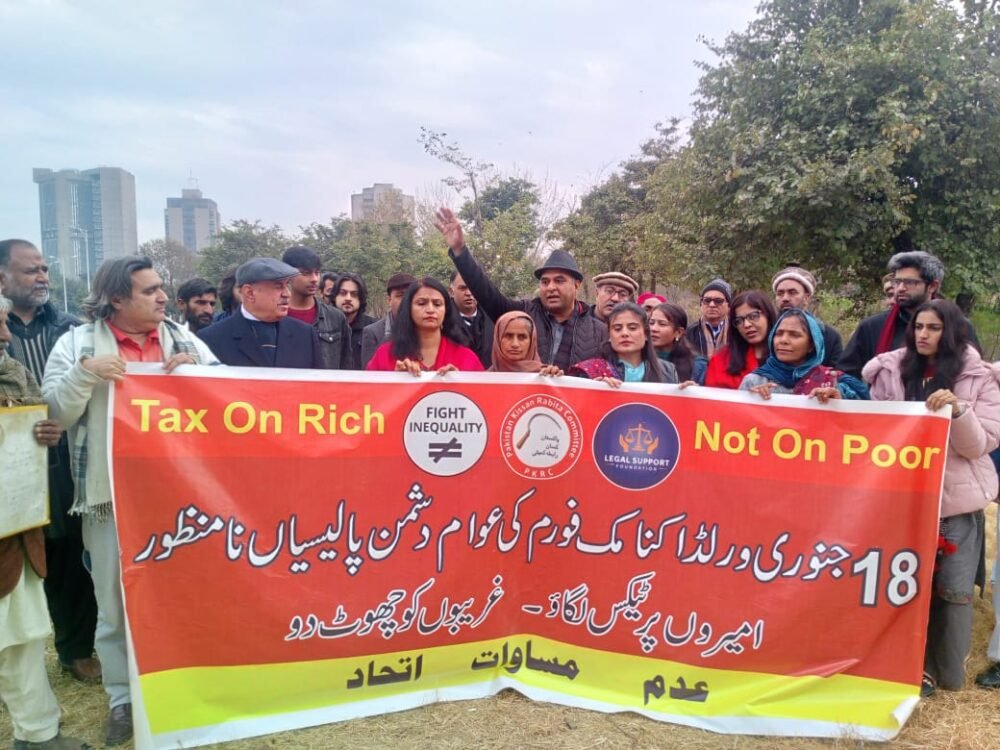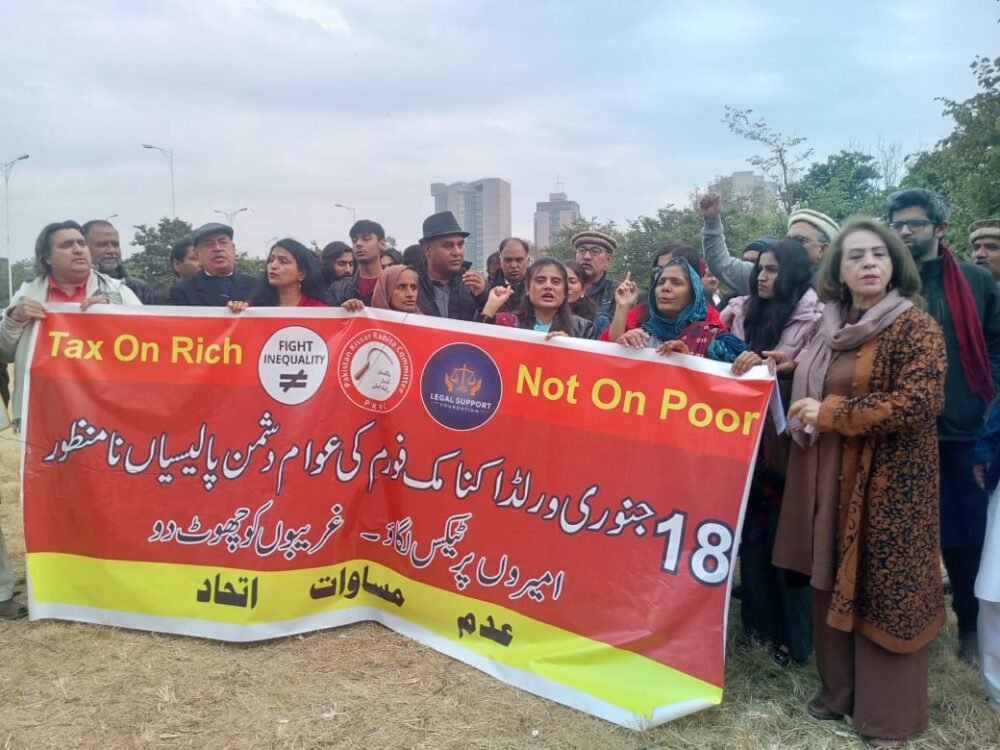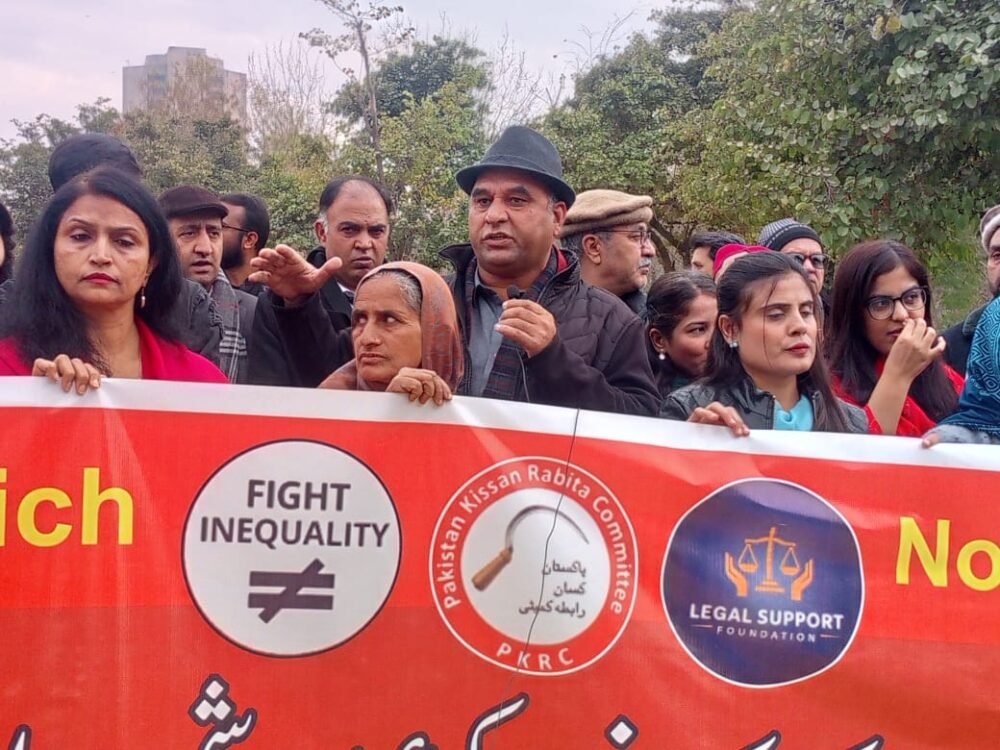News Desk
Islamabad—Protests were held across Pakistan on Saturday against the World Economic Forum (WEF) and its policies, which demonstrators termed as anti-people and exploitative.
The protests were organised in over a dozen cities across the country, on the theme “Red Line Action,” which symbolised the public’s growing frustration with exploitation by the capitalist system. Organised by the Fight Inequality Alliance, the protests coincided with the WEF’s annual meeting in Davos, Switzerland, aimed to raise awareness about the systemic injustices perpetuated by economic elites.
A protest took place in front of the National Press Club in Islamabad, which was attended by prominent political and human rights leaders, including Awami Workers Party President Akhtar Hussain, party’s Federal Committee member and Women’s secretary Dr Farzana Bari, JKAWP chairperson Advocate Nisar Shah, and others.
Advocate Nisar Shah, National Coordinator of the Fight Inequality Alliance, stressed the importance of wealth redistribution for sustainable economic progress. “Economic improvement in Pakistan is impossible without comprehensive land reforms and the implementation of wealth taxes on the rich,” he said.


He criticised the government’s economic policies, claiming they favour the corporate elite while exacerbating poverty and unemployment.
Shah drew attention to the ongoing WEF meeting in Davos, which he described as a forum where wealthy nations and corporations devise policies that perpetuate inequality.
“These decisions directly lead to inflation, unemployment, and climate change, disproportionately affecting poorer countries like Pakistan,” he added.
“We cannot remain silent while billionaire profiteers and corporate interests dictate policies that harm humanity and the planet,” Shah said, emphasizing the urgent need to challenge these exploitative practices.
The protests underscored the need for immediate action to address economic disparities and environmental crises. With widespread participation, the Fight Inequality Alliance reaffirmed its commitment to advocating for policies that prioritise public welfare and ensure a fair distribution of resources.
A press release from the Alliance highlighted capitalist profiteering, the economic exploitation of workers, and the government’s subsidies to large corporations.
They demanded policy changes to prioritise public welfare, including enforcement of a minimum monthly wage of Rs37,000, and distribution of land to small and landless farmers.
They also demanded an immediate halt to corporate farming and the construction of six canals on the Indus River, as rehabilitation aid of Rs1,000,000 per household for victims of the 2022 floods.
They sought climate justice measures, including the accountability of wealthy nations and the fulfilment of climate finance commitments.
The protesters also demanded investment in public welfare and poverty alleviation programs, rejecting reliance on foreign loans.
The demonstrations serve as a reminder that true economic growth and stability require confronting entrenched inequalities and reining in the power of the global capitalist class.

The High Asia Herald is a member of High Asia Media Group — a window to High Asia and Central Asia

